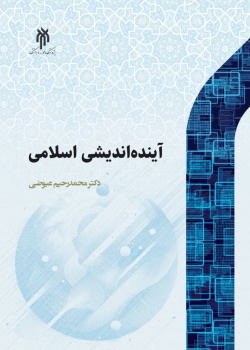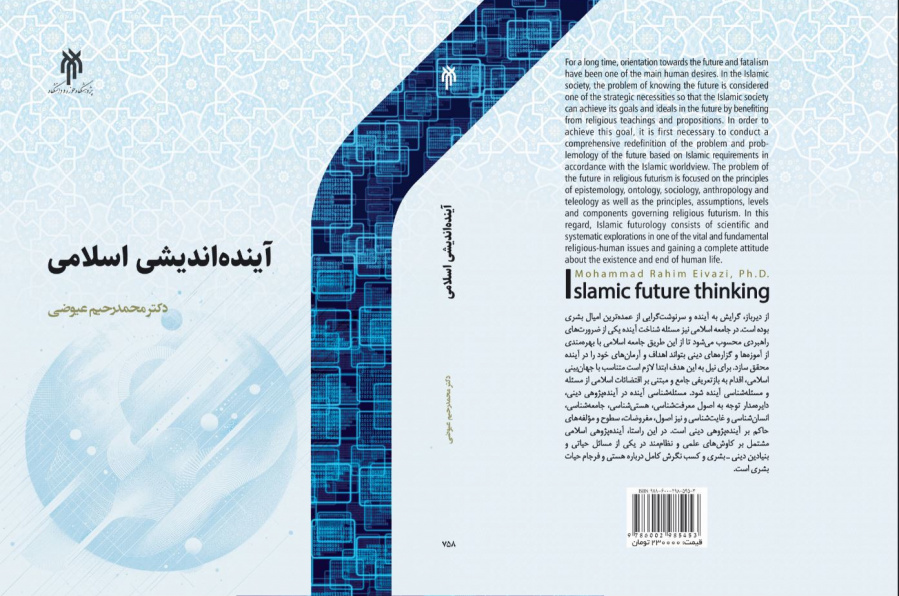



آیندهاندیشی اسلامی
Islamic future thinking
از دیرباز، گرایش به آینده و سرنوشتگرایی از عمدهترین امیال بشری بوده است. در جامعه اسلامی نیز مسئله شناخت آینده یکی از ضرورتهای راهبردی محسوب میشود تا از این طریق جامعه اسلامی با بهرهمندی از آموزهها و گزارههای دینی بتواند اهداف و آرمانهای خود را در آینده محقق سازد. برای نیل به این هدف ابتدا لازم است متناسب با جهانبینی اسلامی، اقدام به بازتعریفی جامع و مبتنی بر اقتضائات اسلامی از مسئله و مسئلهشناسی آینده شود. مسئلهشناسی آینده در آیندهپژوهی دینی، دایرهمدار توجه به اصول معرفتشناسی، هستیشناسی، جامعهشناسی، انسانشناسی و غایتشناسی و نیز اصول، مفروضات، سطوح و مؤلفههای حاکم بر آیندهپژوهی دینی است. در این راستا، آیندهپژوهی اسلامی مشتمل بر کاوشهای علمی و نظاممند در یکی از مسائل حیاتی و بنیادین دینی ـ بشری و کسب نگرش کامل درباره هستی و فرجام حیات بشری است
Mohammad Rahim Eivazi, Ph.D.
or a long time, orientation towards the future and fatalism have been one of the main human desires. In the Islamic society, the problem of knowing the future is considered one of the strategic necessities so that the Islamic society can achieve its goals and ideals in the future by benefiting from religious teachings and propositions. In order to achieve this goal, it is first necessary to conduct a comprehensive redefinition of the problem and problemology of the future based on Islamic requirements in accordance with the Islamic worldview. The problem of the future in religious futurism is focused on the principles of epistemology, ontology, sociology, anthropology and teleology as well as the principles, assumptions, levels and components governing religious futurism. In this regard, Islamic futurology consists of scientific and systematic explorations in one of the vital and fundamental religious-human issues and gaining a complete attitude about the existence and end of human life.
